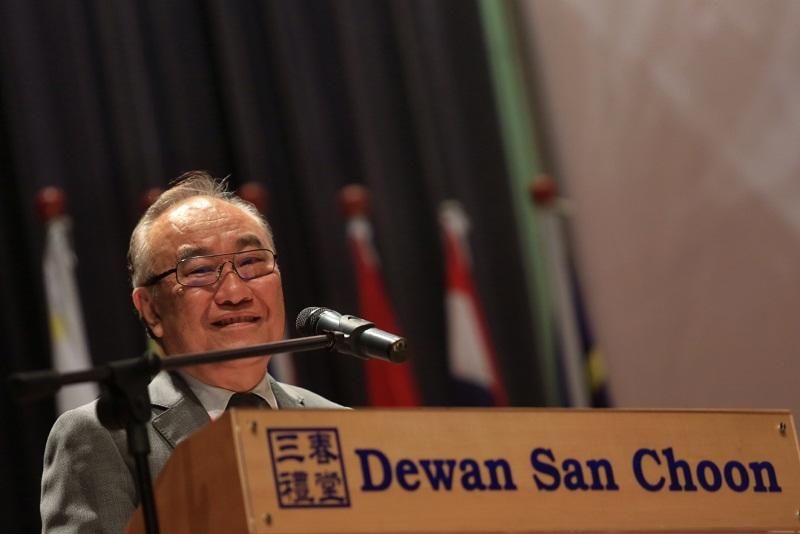
KUALA LUMPUR, Sept 28 The government's planned new integrity department will not be costly to establish and is crucial to institutionalise ongoing efforts to ensure civil servants practice good governance and integrity, a minister has said.
Datuk Paul Low, minister in the Prime Minister's Department, addressed criticism by Malaysian Anti-Corruption Commission (MACC) chief Tan Sri Dzulkifli Ahmad that the planned National Integrity and Good Governance Department (JITN) would incur unnecessary costs that could be used to enhance enforcement agencies welfare and manpower.
It won't cost much, most of the staff will be used is existing staff or redeployment within government and retraining, he told Malay Mail Online when contacted today.
Low confirmed that JITN will largely carry out the same functions and efforts that he is currently doing under his ministerial portfolio of Governance, Integrity and Human Rights under the Prime Minister's Department.
He then went on to explain that the new government department will ensure that efforts to transform the civil service in terms of good governance, integrity and human rights compliance would go on in the future without being dependent on any individual.
I'm already doing the same thing. Now we are formally institutionalising it. We are already doing it. Now we are institutionalising it under JITN.
This is a normal progression, we want to institutionalise what we are doing, so there is sustainability as well, he said.
It doesn't depend on presence of minister. It will continue to be there, he said. It's continuity and sustainability because transformation doesn't take five years, 10 years; it's continuing forever.
Beyond the need to put in the necessary infrastructure and to have an institution leading integrity efforts, Low said forming JITN will mean that it will have its own budget and have more support and flexibility in terms of administration.
With JITN leading initiatives to transform the civil service, Low said the government department will also act as a coordinating body for institutions and all government agencies and work closely with all ministries.
We are basically a ministry that supports other ministries in good governance, he said.
The other thing I want to mention is what we need is to build up civil servants expertise in this area, who will be able to drive these changes. So with JITN, then it's much easier to train civil servants who will be experts in this subject matter, he said.
While JITN will not be involved directly in the training of civil servants, it will provide infrastructure and facilitate such training and take the lead or set the agenda, he said.
No overlap, complementary role
Low also responded to Dzulkifli's criticism earlier this week that upgrading Low's division within the Prime Minister's Department into JITN was unnecessary as there were existing bodies like the MACC, the Malaysian Institute of Integrity (IIM), the Human Rights Commission of Malaysia (Suhakam), the Enforcement Agency Integrity Commission (EAIC).
Low said there would be no overlap between JITN's and MACC's functions, as JITN is focused on transformation efforts and not involved in enforcement efforts.
As for the rest, Low said JITN will complement their efforts and play a supportive role, acting as their liaison with the government to bring up proposals for changes.
Suhakam is independent. As a minister, I liaise with them. As a minister, I have to protect their independence and ensure enough resources for their work. I will be the communication point with them and the government and Cabinet.
The same thing with EAIC and I help them to ensure their independence and as well as make sure resources are allocated to them and (raise) any proposal to empower them, he said, adding that JITN will collaborate with IIM an empowering body not involved in enforcement to find solutions.
Yesterday, Low said the Cabinet had decided this July 28 to establish JITN, which will among other things facilitate the government's engagement with civil society organisations as part of efforts to improve governance, integrity and compliance with good practices of human rights.
Today, Low said a big part of JITN's duties would be in policy-making and to make recommendations for revamp of government processes where necessary, as well as enhance civil servants capacity and strengthening institutional infrastructure for the transformation efforts.
source : - Yahoo Mail


